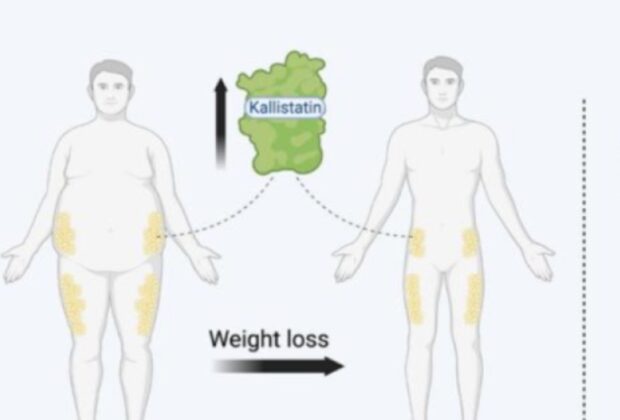Overweight and obese individuals exhibit higher levels of the protein Kallistatin in subcutaneous white adipose tissue after losing weight. In a recent study, DZD researchers provided evidence of this. Furthermore, kallistatin increases metabolism, which may eventually lead to the development of new treatment options for patients with type 2 diabetes and obesity. Molecular Metabolism has recently published the findings.
Obesity and type 2 diabetes are becoming more and more common. These illnesses have many facets and are extremely complex. We need innovative therapeutic modalities to treat patients in a sustainable manner.
Human clinical research have demonstrated that people who are very overweight make less Kallistatin.
One protein that has a variety of physiological impacts is kallistatin. It is involved in wound healing and reducing inflammation, among other things. Researchers from the German Center for Diabetes Research (DZD), the Institute for Diabetes Research and Metabolic Diseases (IDM) of Helmholtz Munich at the Eberhard-Karls-University of Tübingen, and the Department of Diabetology, Endocrinology and Nephrology at the University Hospital Tübingen are currently examining the role that kallistatin plays in glucose metabolism and its potential suitability as a therapeutic target.
Expression of Kallistatin Rises During Weight Loss
In order to achieve this, they assessed the expression of Kallistatin in subcutaneous white adipose tissue in 47 overweight to obese people both before and after they lost weight. The end outcome is an increase in kallistatin expression following weight loss.
Enhances Hepatic Insulin Sensitivity is Kallistatin
The impact of the protein in an animal model was also investigated by the researchers. They discovered in the process that in diet-induced obese mice, human kallistatin enhances hepatic insulin sensitivity.
Lead author Leontine Sandforth comments, “Our results suggest that Kallistatin may be an interesting, yet challenging, therapeutic target for people with obesity and insulin resistance.” “Because Kallistatin has insulin-sensitizing effects in the liver, it should be investigated as a potential liver-specific target for emulating the beneficial effects of weight loss and potentially treating type 2 diabetes and obesity,” says the last author, Prof. Andreas Birkenfeld.








